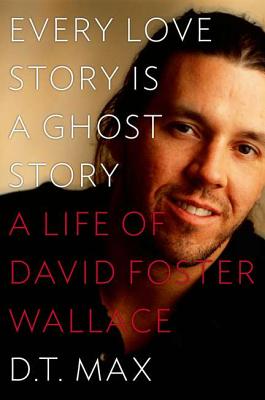The first biography of the most influential writer of his generation, David Foster Wallace
David Foster Wallace was the leading literary light of his era, a man who not only captivated readers with his prose but also mesmerized them with his brilliant mind. In this, the first biography of the writer, D. T. Max sets out to chart Wallace’s tormented, anguished and often triumphant battle to succeed as a novelist as he fights off depression and addiction to emerge with his masterpiece, Infinite Jest.
Since his untimely death by suicide at the age of forty-six in 2008, Wallace has become more than the quintessential writer for his time—he has become a symbol of sincerity and honesty in an inauthentic age. In the end, as Max shows us, what is most interesting about Wallace is not just what he wrote but how he taught us all to live. Written with the cooperation of Wallace’s family and friends and with access to hundreds of his unpublished letters, manuscripts, and audio tapes, this portrait of an extraordinarily gifted writer is as fresh as news, as intimate as a love note, as painful as a goodbye.
Mark L. says:
"Any biography is a risk. At base it is a house of cards made of assembled opinions, points of view, and memory, then conclusions are balanced upon those. Smear pieces or hagiographies are safer, but the unflinchingly neutral is far more difficult, and embracing that risk is the beauty of Max's biography of David Foster Wallace.
Max clearly shows that Wallace is deserving of respect for two reasons, the body of his writing, and his struggle against the pervasive burden of depression. He shows us also, that Wallace's damnation was his own internal critic and the demons of his mind that drove him through cycles of ruined relationships and destructive behaviors, yet Wallace took on the responsibility to try and make amends for both, with varying success.
Employing the tacit assumption that a writer cannot be divorced from his creation allows Max to structure this book in a direct and relevant way. He shows us enough of the output, the books and stories, fiction and non-fiction, that we get a ruler of his work to measure against his personal life in an effective timeline. This work succinctly opens the mystery of Wallace's life for his readers, and while it leaves many questions, it was a pleasure to read. If you are even a bit fascinated with the trope of artist as tortured genius, this book shows that it is not a cliche.
While one might wish for a broader and deeper examination of Wallace, Max was wise not to tumble down that rabbit hole. Wallace's life will leave years of work for academics and doctoral students to build structures upon and deconstruct themes out of. There is a spirit of open compassion that Max imbues this work with that allows the reader to view a very fallible human being without the temptation to excesses of pity or disapproval.
For the general reader this is a worthy book to use as a mirror of culture as Wallace the writer saw it and a good introduction into Wallace the man."


1 comment:
I read Consider the Lobster recently. This is on my list, I would love to know more about the author.
Post a Comment